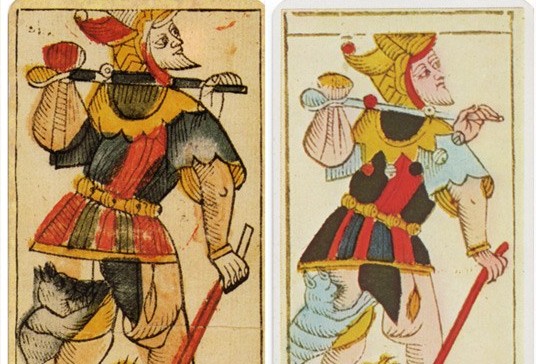‘Smee’ would not appreciate being called a fool, holy or otherwise.
Sister Marie Estelle (special ops codename: “Smee”) was the principal of our Catholic grade school in Milwaukee for many years. Like so many great religious women, Sr. Marie Estelle ran an incredible school on a shoestring budget. Each morning she would greet us at the door with a smile, a pat on the back, and a word of encouragement.
I remember one Mardi Gras celebration in particular. Sister was running the piñata-hitting station. After spinning a blind-folded seventh grader into dizziness, Sister didn’t manage to retreat to a safe distance in time. Whack! She took a whiffle bat to the head that would’ve stunned Jose Canseco, let alone a thin, kindly religious sister. And yet, like the near-invincible T-1000 from Terminator, she lifted her head, smiled to assure us she was all right, and handed the bat to the next batter. No harm, no foul.
* * *
I never was in a class taught by Sr. Marie Estelle. But some twenty years later, I am still inspired by this holy woman who left such an impression on my young soul. No doubt each of us has similar stories of those who’ve taught us about life, inside the classroom and out. These role models are quiet and strong; deferential and courteous; joyful and easy-going; people who don’t take themselves too seriously; people who are unaffected by slights and inconveniences. It seems like these holy ones walk through life untouched by the slings and arrows that so easily discourage the rest of us. I wonder, how did these people get like this? When did the pixie dust rain down on them? Have they always been blissfully unaware of others’ eye-splinters, ‘holy fools’ untroubled by the reality around them?
And more importantly, What must they think of the rest of us, who fall far short of unconditional love?
Maybe Sr. Marie Estelle was so unflappable because she had no idea what was going on around her. (Maybe she thought getting hit with a whiffle bat was a sign of adolescent affection?) Maybe life was just simpler for the respectable, kindly figures who inhabit these stories. Maybe everybody was just less cynical, less unloving, ‘back in the day’.
“Not so fast, there, Simmons” you might say. And you’d be right.
Though Sr. Marie Estelle was old as the hills in the eyes of an eight year old, we knew from the look on her face that she didn’t miss anything. AN.Y.THING. To my young mind, Sister was everywhere at once – leading morning announcements, prefecting the cafeteria during lunch time, picking up trash as she strolled the hallways. When I was in third grade, she once caught wind of one of my smart-alecky remarks about a teacher. Her face appeared in Ms. Schwab’s door-window that afternoon, staring right at me. Sister called me into the hallway with a slender, beckoning finger. It was time for Joey to have a come-to-Jesus chat about kindness. How did she KNOW??
* * *
When I’ve actually sat and talked with the “holy fools” in my life, I find something in them other than blissful aloofness. They too have had unkind thoughts fill their heads, and strong feelings slink through their hearts. They too know pettiness, jealousy, competitiveness, pride, and sloth. They too have walked with, talked with, and wrestled with demons that plague all of us. They too have failed in the past to live up to their own aspirations, yes — but they get back up and keep trying, one day at a time.
A few years ago, our resident Thinker of Luminous Thoughts Tim O’Brien, SJ turned me on to a quotation which stopped me cold. Author Marilynne Robinson writes,
“The tragic mystery of human nature has by no means played itself out. Wisdom, which is almost always another name for humility, lies in accepting one’s own inevitable share of human fallibility.”
Maybe that’s what holiness looks like for us in a somewhat cynical age: Accepting one’s one fallibility. The wisdom of our “holy fools” lies not in their ability to ignore reality, but to be fully attuned to it. Yet wisdom is more than an ability to sniff out and name shortcomings. Holy wisdom comes from a learnéd, cultivated love of others, a love which would sooner pardon than pin down. Why? Because these “holy fools” know that they have their own demons, and they turn to God for help to keep them tamed. They have experienced – and in turn embody – the forgiving love that God has for each of us, in spite of ourselves. The God who knows all of our resistances and limitations, and like a parent — or a kindly grade school principal — wants only the best for us.
These are the wise teachers, the saintly heroes of the stories we tell. Often enough, they see the limitations we work so hard to cover, and yet they refrain from rendering judgment. Perhaps it is their loving restraint — rather than aloofness — that give them an aura of saintliness. Thank God for these living saints, who remain so resolutely uninterested in others’ imperfections.

The Smiling Pope
If Marilynne Robinson is right, then wisdom and humility are not magic. They do not hit us all at once like a whiffle bat — at least they haven’t for me. Whatever patience and love I’ve summoned for others has come only from recognizing the slow, patient love I’ve already received. Love and support from the the unheralded saints — the holy fools — that God has seen fit to place in our lives.
Saint John XXIII wrote, “See everything. Overlook a lot. Make a little progress.” If this is how saints are forged, then sign me up.
+May all God’s holy fools pray for us today, and every day.+


